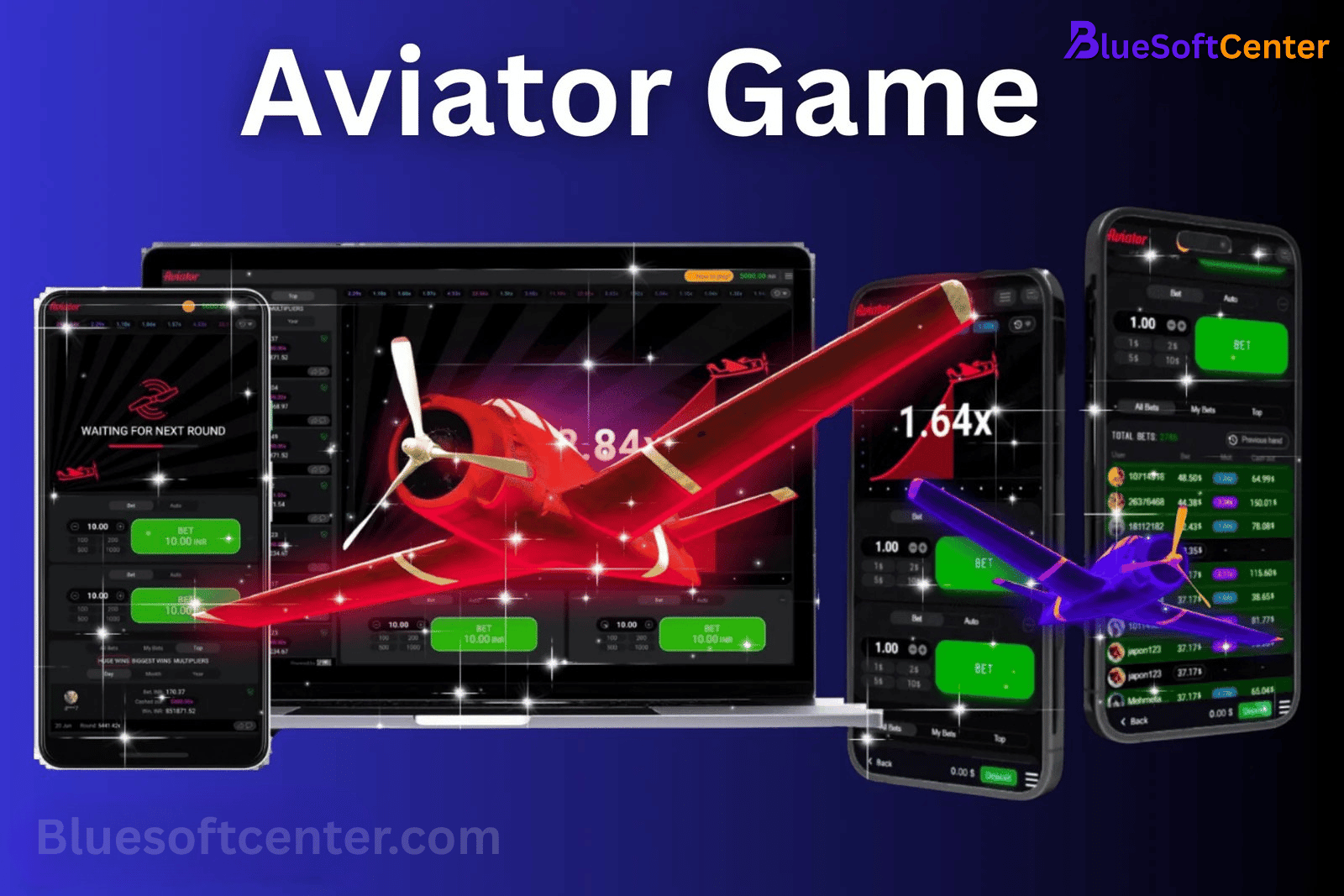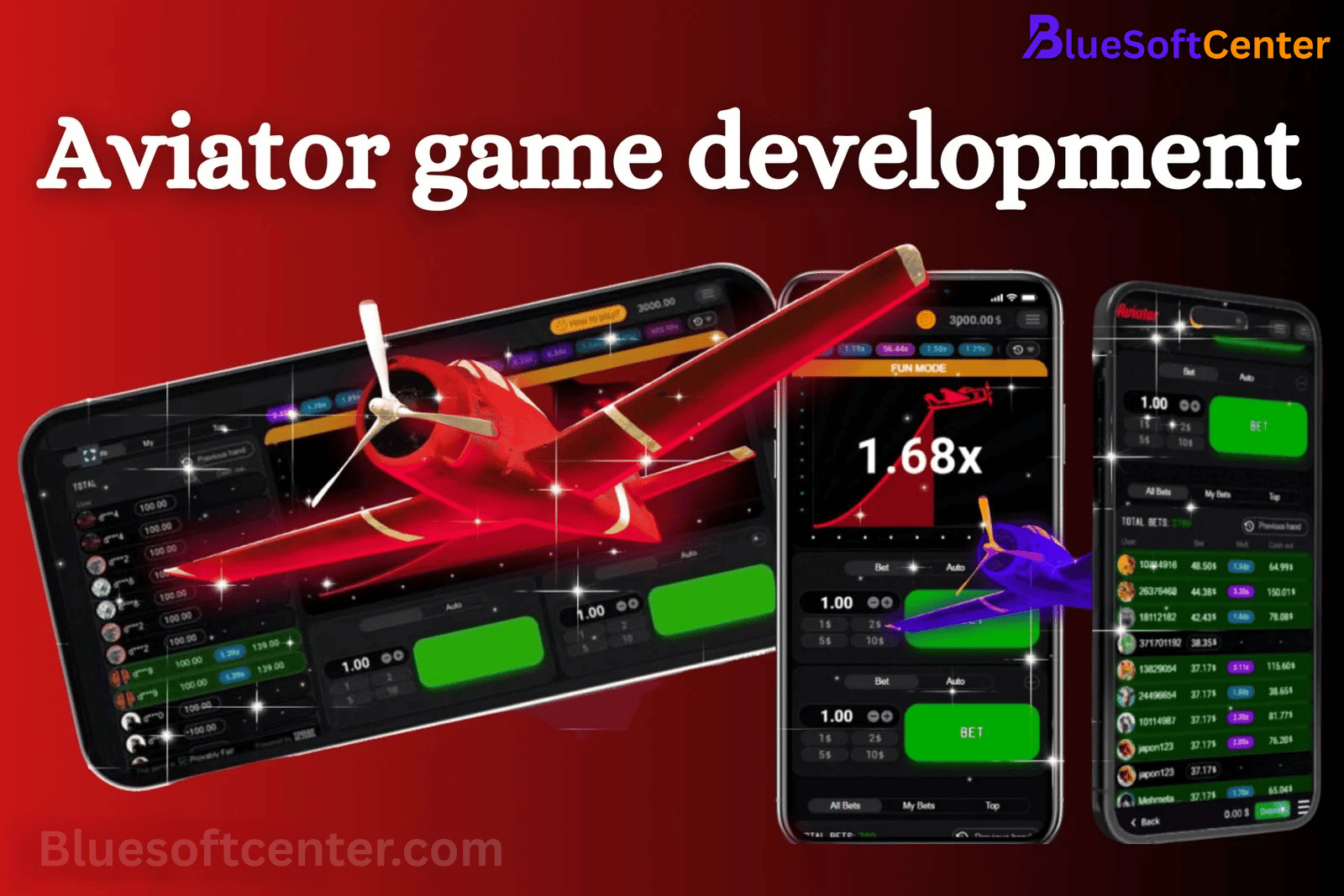Exploring the World of Aviator Game Development: A Beginner’s Guide
The thrilling, high-stakes experience of the Aviator game has taken the online social casino and real-money gaming world by storm. Its simple yet nerve-wracking mechanic – watching a multiplier climb and cashing out before the plane “flies away” – creates unparalleled excitement. If you’re captivated by this phenomenon and curious about how these games are built, this beginner’s guide dives into the essentials of Aviator Game Development, covering mechanics, costs, design, and why Aviator Game Development in India is a strategic choice.
What is the Aviator Game?
Imagine a graph where a line (representing an airplane’s flight and a multiplier) starts at 1x and climbs rapidly. Players place a bet before the round starts. As the multiplier increases, players must hit “Cash Out” before the plane randomly flies off the screen (ending the round). If they cash out successfully, they win their bet multiplied by the multiplier at that moment. If they wait too long and the plane flies away, they lose their bet. It’s a game of nerve, timing, and risk assessment.

Key Phases of Aviator Game Development:
Concept & Core Mechanics:
Algorithm & RNG: The heart of the game is the algorithm controlling the plane’s flight path (multiplier curve). This must use a certified, provably fair Random Number Generator (RNG). The algorithm determines the crash point distribution, ensuring unpredictability and fairness. This is non-negotiable, especially for real-money versions.
Betting & Payout Logic: Defining bet limits, calculating instant payouts based on the multiplier at cash-out, and managing the internal wallet system.
Aviator Game UI Design: The Visual Hook
Core Elements: The soaring plane/graph, prominent real-time multiplier display, clear “Bet” and “Cash Out” buttons, player bet history, and round history showing previous crash points.
Engagement & Clarity: The UI must be visually exciting (animations of the plane climbing, cash-outs exploding) but also crystal clear. Players need instant visibility of their bet, potential win, and the current multiplier.
Theming: While the core graph is standard, subtle theming around aviation (sky backgrounds, plane designs) enhances immersion. Aviator Game UI Design is critical for player retention – it needs to build tension and provide immediate feedback.
Technology Stack:
Frontend: React Native or Flutter for cost-effective cross-platform apps (iOS & Android); Swift (iOS) or Kotlin (Android) for native performance; HTML5/WebGL for browser play.
Backend: Node.js, Python (Django/Flask), or Java for handling real-time bets, calculations, and game state. Needs high concurrency.
Database: PostgreSQL, MySQL, or MongoDB for storing user data, bets, game history, and financial transactions.
Real-time Communication: WebSockets (e.g., Socket.IO) are essential for instantly updating the multiplier and cash-out events to all connected players simultaneously.
Essential Features:
User Registration & Profiles: Secure signup/login.
Wallet System: For deposits, bets, winnings, and withdrawals (real-money).
Game History: Personal bet history and public round history (previous crash multipliers).
Live Stats: Often shows total bets placed and total cash outs in the current round.
Admin Panel: Comprehensive dashboard for managing game settings (RNG parameters, bet limits), users, financials, promotions, and monitoring.
Security & Compliance (Crucial for Real-Money):
RNG Certification: Independent audits (e.g., iTech Labs, eCOGRA) are mandatory.
Data Encryption: SSL/TLS for all data transmission.
Secure Payment Gateways: Integration with trusted providers (Stripe, PayPal, regional options like UPI in India).
KYC/AML: Robust identity verification and fraud prevention systems.
Licensing: Obtaining the necessary gambling/gaming licenses for target markets is complex and essential. Legal consultation is paramount.
Understanding Aviator Game Development Cost
The Aviator Game Development cost varies significantly based on:
Complexity: Custom RNG algorithm design, unique features (auto cash-out, bonuses), animation level.
Platforms: Native (iOS & Android separate) vs. Cross-Platform vs. Web.
Aviator Game UI Design: Custom, high-quality design and animations cost more than templates.
Real-Money Integration: Adding payment gateways, KYC/AML, wallet system, and licensing drastically increases cost vs. a social/free-to-play version.
Team Location: Hiring an individual Aviator Game Developer in the US/Europe is expensive. Partnering with an Aviator Game Development Company in India offers substantial savings (often 30-50%) while maintaining quality.

Why Consider Aviator Game Development in India?
India has emerged as a global leader in high-quality, cost-effective game development, especially for real-time and real-money games:
Cost Efficiency: Significantly lower Aviator Game Development cost compared to Western counterparts without sacrificing technical expertise.
Technical Talent Pool: Access to a vast pool of skilled Aviator Game Developers proficient in the required technologies (JavaScript frameworks, Node.js, real-time systems, mobile dev).
Proven Experience: Many Indian studios have extensive experience in building successful social casino and real-money games, including crash games like Aviator. Look for portfolios.
Focus on Quality: Reputable companies prioritize robust architecture, certified RNG, and engaging Aviator Game UI Design.
Scalability: Easily scale your development team based on project needs.
Choosing an Aviator Game Development Company:
Portfolio & Experience: Look for proven experience specifically in crash/aviator-style games and real-money gaming (if applicable). Ask for demos and case studies.
RNG & Security Expertise: Verify their approach to provable fairness, RNG certification, and security protocols.
UI/UX Design Capability: Review their design portfolio to ensure they can deliver captivating and intuitive Aviator Game UI Design.
Tech Stack Proficiency: Ensure they use modern, scalable technologies.
Communication & Process: Clear communication channels and an established development methodology (Agile) are vital.
Post-Launch Support: Ensure they offer reliable maintenance and updates.
Conclusion
Aviator Game Development offers an exciting entry point into the world of online gaming, combining relatively simple mechanics with high player engagement. While building a successful Aviator game involves complex technology, rigorous security, and careful design, understanding the core components – especially the critical algorithm, real-time tech, and compelling Aviator Game UI Design – is the first step. For entrepreneurs and businesses, partnering with an experienced Aviator Game Development Company, particularly exploring options for Aviator Game Development in India, provides a strategic path to bringing this thrilling game concept to life efficiently and effectively. Remember, prioritizing fairness, security, and a fantastic user experience is key to soaring success in the competitive Aviator game market.

